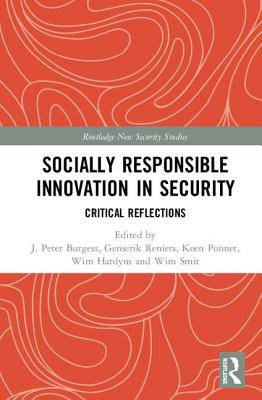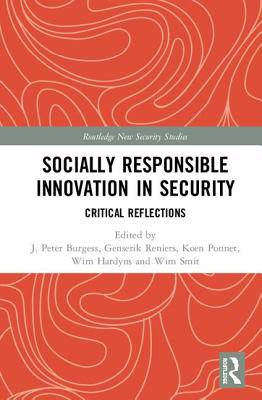
- Retrait gratuit dans votre magasin Club
- 7.000.000 titres dans notre catalogue
- Payer en toute sécurité
- Toujours un magasin près de chez vous
- Retrait gratuit dans votre magasin Club
- 7.000.0000 titres dans notre catalogue
- Payer en toute sécurité
- Toujours un magasin près de chez vous
Socially Responsible Innovation in Security
Critical Reflections
Description
This book examines the possibility of socially responsible innovation in security, using an interdisciplinary approach.
Responsible innovation in security refers to a comprehensive approach that aims to integrate knowledge related to stakeholders operating at both the demand and the supply side of security - technologists, citizens, policymakers and ethicists. Security innovations can only be successful in the long term if all the social, ethical and ecological impacts, and threats and opportunities, both short term and long term, are assessed and prioritized alongside technical and commercial impacts.
The first part of this volume focuses on security technology innovation and its perception and acceptance by the public, while the second part delves deeper into the processes of decision-making and democratic control, raising questions about the ethical implications of security ruling.
This book will be of much interest to students of critical security studies, sociology, technology studies and IR in general.
Spécifications
Parties prenantes
- Editeur:
Contenu
- Nombre de pages :
- 156
- Langue:
- Anglais
- Collection :
Caractéristiques
- EAN:
- 9780815371397
- Date de parution :
- 03-05-18
- Format:
- Livre relié
- Format numérique:
- Genaaid
- Dimensions :
- 160 mm x 239 mm
- Poids :
- 358 g

Les avis
Nous publions uniquement les avis qui respectent les conditions requises. Consultez nos conditions pour les avis.





